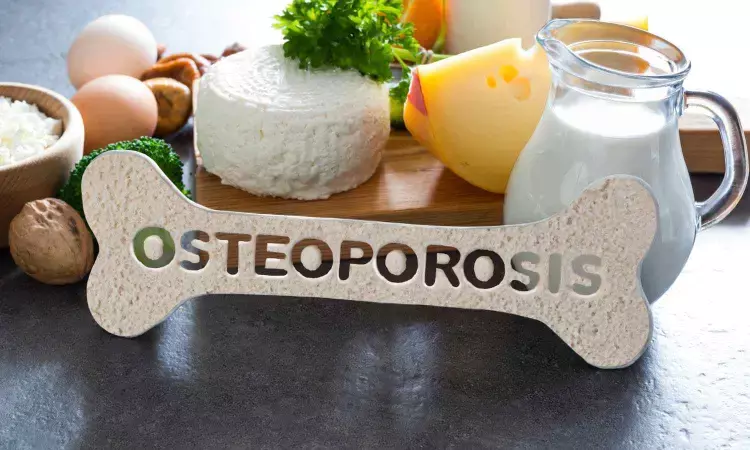- Home
- Medical news & Guidelines
- Anesthesiology
- Cardiology and CTVS
- Critical Care
- Dentistry
- Dermatology
- Diabetes and Endocrinology
- ENT
- Gastroenterology
- Medicine
- Nephrology
- Neurology
- Obstretics-Gynaecology
- Oncology
- Ophthalmology
- Orthopaedics
- Pediatrics-Neonatology
- Psychiatry
- Pulmonology
- Radiology
- Surgery
- Urology
- Laboratory Medicine
- Diet
- Nursing
- Paramedical
- Physiotherapy
- Health news
- Fact Check
- Bone Health Fact Check
- Brain Health Fact Check
- Cancer Related Fact Check
- Child Care Fact Check
- Dental and oral health fact check
- Diabetes and metabolic health fact check
- Diet and Nutrition Fact Check
- Eye and ENT Care Fact Check
- Fitness fact check
- Gut health fact check
- Heart health fact check
- Kidney health fact check
- Medical education fact check
- Men's health fact check
- Respiratory fact check
- Skin and hair care fact check
- Vaccine and Immunization fact check
- Women's health fact check
- AYUSH
- State News
- Andaman and Nicobar Islands
- Andhra Pradesh
- Arunachal Pradesh
- Assam
- Bihar
- Chandigarh
- Chattisgarh
- Dadra and Nagar Haveli
- Daman and Diu
- Delhi
- Goa
- Gujarat
- Haryana
- Himachal Pradesh
- Jammu & Kashmir
- Jharkhand
- Karnataka
- Kerala
- Ladakh
- Lakshadweep
- Madhya Pradesh
- Maharashtra
- Manipur
- Meghalaya
- Mizoram
- Nagaland
- Odisha
- Puducherry
- Punjab
- Rajasthan
- Sikkim
- Tamil Nadu
- Telangana
- Tripura
- Uttar Pradesh
- Uttrakhand
- West Bengal
- Medical Education
- Industry
Risk-Based, Centralized Screening may Improve Osteoporosis Care in Men: JAMA

Researchers have found in a new cluster randomized trial that selecting men for osteoporosis screening by fracture risk factors and using a centralized screening model enhanced screening rates, treatment initiation, and medication adherence. The findings, published in JAMA, highlight a potential shift in how osteoporosis prevention and care can be effectively implemented in men, a group often underdiagnosed and undertreated for bone health.
The study included older male participants who were identified through primary care practices. Rather than relying solely on opportunistic screening during clinic visits, the intervention used a centralized process that flagged high-risk individuals based on established fracture risk profiles. These men were then invited for dual-energy X-ray absorptiometry (DXA) testing and, if indicated, were offered treatment and follow-up support.
Compared to usual care, the risk-based centralized strategy led to significantly higher screening completion rates. Importantly, it also increased the number of men who started pharmacologic therapy for osteoporosis, with better persistence and adherence to prescribed medications. This is particularly relevant given that men tend to present later in the course of osteoporosis, often after experiencing a fragility fracture, leading to worse outcomes compared to women.
The authors suggest that integrating centralized screening pathways within health systems may reduce the burden on primary care providers, while ensuring that men at greatest risk are not overlooked. Such approaches could ultimately reduce fracture incidence, health care costs, and disability related to osteoporosis.
Further research is needed to evaluate scalability across diverse populations and health systems, as well as to assess long-term impacts on fracture prevention and mortality. Still, the results add to growing evidence that proactive, risk-based, and system-level interventions can close existing gaps in men’s osteoporosis care.
Reference:
Crandall, C. J., et al. (2025). Effect of risk-based, centralized screening on osteoporosis detection and treatment in men: A cluster randomized clinical trial. JAMA. https://jamanetwork.com/journals/jama/fullarticle/xxxx
Dr. Shravani Dali has completed her BDS from Pravara institute of medical sciences, loni. Following which she extensively worked in the healthcare sector for 2+ years. She has been actively involved in writing blogs in field of health and wellness. Currently she is pursuing her Masters of public health-health administration from Tata institute of social sciences. She can be contacted at editorial@medicaldialogues.in.
Dr Kamal Kant Kohli-MBBS, DTCD- a chest specialist with more than 30 years of practice and a flair for writing clinical articles, Dr Kamal Kant Kohli joined Medical Dialogues as a Chief Editor of Medical News. Besides writing articles, as an editor, he proofreads and verifies all the medical content published on Medical Dialogues including those coming from journals, studies,medical conferences,guidelines etc. Email: drkohli@medicaldialogues.in. Contact no. 011-43720751


